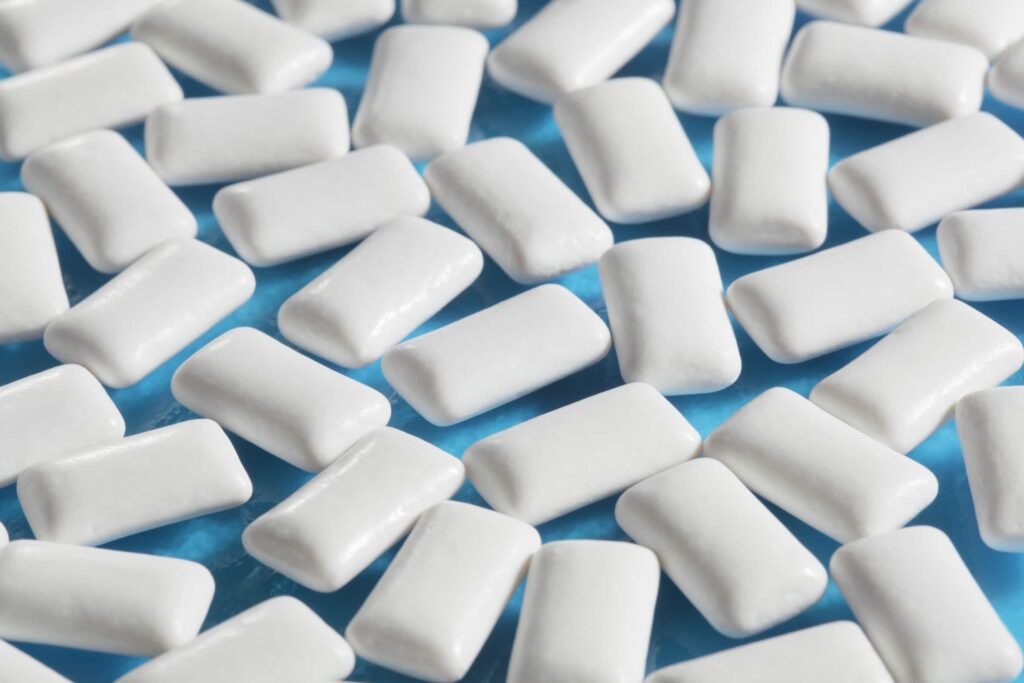Gum chewing is safe, right? You may even have read or heard that it’s beneficial for your teeth.
However, we implore you to pause before popping open the next stick of gum. It turns out that chewing gum could seriously harm your teeth and jaw.
Is it harmful to chew gum?
Your temporomandibular joints, which are situated in front of each ear, are where your jaw moves. That joint is supported by a network of muscles. To chew and move your jaw from side to side, the muscles in your jaw bring it together.
Typically, you chew food so that it can be swallowed in smaller pieces. However, when you chew gum, you are simply chewing. Gum chewing is regarded by dentists as parafunctional, or outside of normal function.
Your temporomandibular joints, muscles, and teeth are subjected to excessive force when you chew gum all the time, which causes overstress, imbalance, and misalignment. This may lead to:
- one or both of the temporomandibular joints clicking or popping.
- Jaw ache.
- tooth breakage.
GUM SUGAR CAN LEAD TO TOOTH DECAY
Midway through the 1800s, gum sales in the United States began, and they quickly spread. The average American chewed 105 sticks of gum annually by the 1920s.
Manufacturers discovered early on that flavorings and sugar made gum more appealing. But dentists began to realize that the extra sugar contributed to tooth decay in the 1950s.
Because the bacteria in your mouth convert sugar to acid, tooth decay happens. Your teeth’s hard enamel surface is dissolved by the acid, which leaves holes in the enamel and openings for bacteria to infect the dentin layer and pulpal tissues of your teeth. Your tooth may eventually need a root canal to be saved as it deteriorates.
DO THE PERKS OF CHEWING GUM EXIST?
The first sugar-free gums hit the market in the 1960s to encourage better oral health.
Artificial sweeteners like aspartame, stevia, xylitol, and sorbitol, which don’t cause tooth decay, are found in sugar-free gum. In fact, studies suggest that there may be some advantages to chewing sugar-free gum.
For instance, chewing gum stimulates salivation, which enhances oral health by clearing away food particles and balancing the acids produced by the bacteria in your mouth.
Using gum can relieve dry mouth (but may not be the best way)
When your mouth doesn’t produce enough saliva, it can lead to dry mouth, also known as xerostomia. It may result in bad breath and ultimately tooth decay.
Dr. Kahn states that while chewing gum frequently is probably not the best way to treat dry mouth, it does increase saliva production. Water sips throughout the day can be equally effective. Additionally, there are drugs you can take to boost your body’s natural saliva production.
Your doctor can assist you in identifying the root cause of your dry mouth so that you can either prevent it or create a plan to lessen your symptoms.
No proof exists that chewing gum reduces stress.
Gum is often cited by users as a way to feel calmer, concentrate during a test, or resist an alluring snack. But there is conflicting scientific evidence. There is no hard evidence that chewing gum negatively affects your weight, grades, or mental health.
Using nicotine gum to stop smoking
One of the most crucial things you can do to improve your health is to stop smoking. About 12% of American adults, according to the Centers for Disease Control and Prevention (CDC), are expected to still smoke in 2020. Many smokers make attempts to stop but are unsuccessful.
One method used by people to help them stop smoking is nicotine gum. It is not gum that you continuously chew. For about 30 minutes, you repeat the process of chewing a little to release the nicotine and then tucking it between your cheek and gum. The following are a few oral side effects:
- excessive salivation,
- jaw pain,
- mouth irritation.
CONCLUSION:
Contrary to what the old joke claims, the majority of people can chew gum and walk at the same time. But that does not imply that you must. Gum chewing can seriously damage your teeth and jaw.
Avoid chewing gum if you have jaw issues. You shouldn’t chew gum if you have TMJ dysfunction or if you start to feel any popping, clicking, or pain in your jaw. Visit your dentist if these problems are brand-new.

